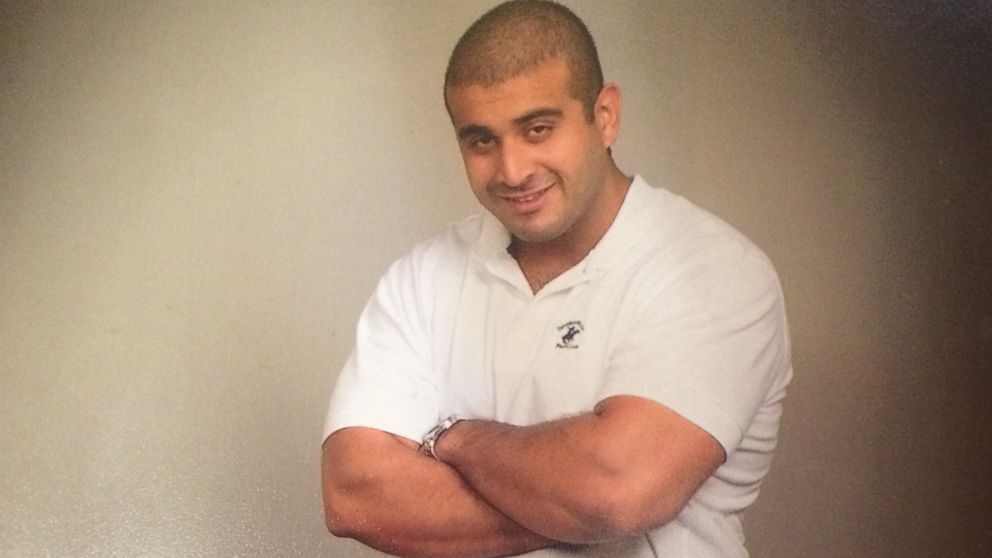Witnesses Say Orlando Shooter at Gay Clubs on a Regular Basis
— -- The man who killed 49 people at the Pulse nightclub in Orlando, Omar Mateen, was a regular patron of gay clubs in Florida for years, club employees, acquaintances and former classmates told ABC News.
“Sometimes he would be there for a few weeks at a time and maybe on the weekends, and then you wouldn’t see him for a little while, then you’d see him again, and that’s the way it kind of went,” said 71-year-old James Van Horn, who has frequented Pulse.
Two people who worked at the club said they also recognized Mateen as a customer. One of them, head of security Estella Peterkin, said she had to kick him out multiple times for bad behavior.
The revelations about Mateen come as the FBI delves into his life, capitalizing on two major developments: the successful exploitation of his cellphone and the cooperation of his wife, 30-year-old Noor Mateen. A senior counterterrorism official told ABC News that Noor Mateen is providing key information to investigators.
FBI Director James Comey said Monday, “We are going through the killer’s life, as I said, especially his electronics, to understand as much as we can about his path and whether there were anyone else involved either in directing him or in assisting him.”
FBI agents are hearing accounts of Omar Mateen’s presence at gay clubs going back years.
A former classmate at a police academy — who requested he not be identified — told ABC News that Mateen hung out with him and others, frequenting Florida gay bars while they were at the Indian River State College training program, as far back as 2006.
One night, he said, Mateen asked him if he was gay. “You would be my kind of guy,” the classmate said Mateen told him.
Employees and patrons at Pulse told ABC News that Mateen went to the bar on a regular basis.
Chris Callen, a performer at the club, said Mateen “didn’t seem homophobic to me.”
“He seemed really warm,” Callen said. “I don’t get the terrorist part of it.”
“He would try to meet people and try to bump up against people and put his arm around and maybe try to dance with them or something, because that’s what everybody tries to do,” Van Horn said.
Another Florida man, Kevin West, told ABC News’ Houston affiliate, KTRK, that he was contacted by Mateen on a gay dating app.
“When he first contacted me, he was asking ... what clubs are popping and things of that sort and what are good places to go,” West said.
The purported behavior appears severely at odds with how Mateen said he felt about gay people, according to his ex-wife, Sitora Yusufiy, who was married to Mateen briefly in 2009.
“I started noticing in his emotional instability. He would express his anger towards [a] certain culture, homosexuality, because in ... Islamic culture, it is really not tolerated, homosexuality, and I know at the time he was trying to get his life straight and follow his faith. I guess that created some confusion between that, and there was definitely moments that he would express his intolerance to homosexuals,” she said Monday.
Today Yusufiy said Mateen had told her that he used to go out to night clubs “a lot,” but never said they were gay clubs.
“Do I think he was gay?... At this point, I think he might have been,” she said. “You know, knowing somebody and living with them every day... I can honestly say I had no clue. But from everything that has occurred and connecting the pieces to what I knew myself from my time and experience, I would not be surprised.”
Cases in which repressed homosexuality has been linked to extremism have been an interest for counterterrorism officials. In 2011 an analysis of homegrown extremists by the National Counterterrorism Center and obtained by ABC News included a secret report from the CIA that said that for some young men who converted to Islam and later became radicals, the strict religious structure offered “a hope of banishing their impulses and fantasies that they did not view as acceptable.”
Jerrold Post, formerly a longtime psychologist with the CIA, told ABC News today that over his career, he has seen the psychodynamic of individuals “striking out against a forbidden part of oneself” but that at this point, it’s too early to leap to conclusions about Mateen’s motives.
Mateen was born in New York to Afghan parents in 1986 and has been described by his ex-wife and father as devout in his Muslim faith but not radical. He regularly attended a local mosque, his family said, and twice traveled to Saudi Arabia for pilgrimages to the Islamic holy city of Mecca.
During the assault Sunday, officials said he called 911 and pledged his allegiance to ISIS, the Syrian-based Islamic terrorist group. But terrorism experts said evidence has yet to surface showing any substantive link to the group, and Comey said it does not appear that the attack was directed from abroad. The FBI investigated Mateen in 2013 for purportedly inflammatory claims he made about being linked to extremists, but after 10 months of surveillance and two interviews with him, agents determined that he was not a threat and closed the case.
“Is this an expression of radical Islam? Or does it have to do with the conflicted feelings about homosexuality?” said Post, now a professor of psychology at the Elliot School of International Affairs at George Washington University. “That’s an unnecessary separation. One can be, on the one hand, fighting against the perhaps inner attraction of homosexuality and at the same time honoring the act by saying he was a radical Islamist. It doesn’t have to be one or the other. But at this point, it’s all speculation.”
ABC News’ Michael Del Moro, Monica Escobido, Stephanie Wash, Zoe Lake, Randy Kreider and Lee Ferran contributed to this report.




